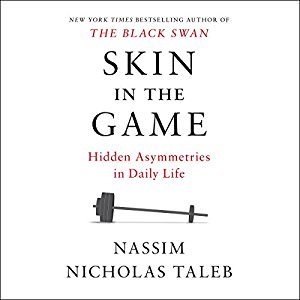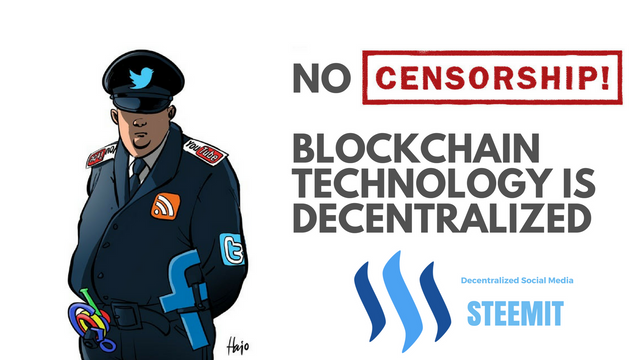Review Of Nassim Nicholas Taleb's Latest, "Skin In The Game"
Irrepressible
One thing about Nassan Taleb: he lets his opinions hang out. His just-published book, Skin In The Game is the latest in his Incerto series. Some describe it as the series' capstone.

He's laced the text with bashing his favorite pet peeves: Wilsonian interventionists ("interventionistas"), Robert Rubin, Stephen Pinker, "Intellectuals Yet Idiots," Saudi Arabia, Salafist Islam, GMO foods, book reviewers ;) , and more. The text itself centers on a lesson that too many people have forgotten: granting power to take risks to people who share in the upside but don't share in the downside creates a system tilted towards folly. If you're privileged enough for "heads I win, tails someone else loses", you can make foolish bets again and again and again.
Hence the importance of skin in the game : if a risk-taker shares in the upside, (s)he had to share in the downside. With skin in the game comes prudence. Without skin in the game comes creeping recklessness.

Taleb's take is contrarian. We naturally believe, or have been led to believe, that a lack of skin in the game bestows disinterest. Stockbrokers with skin in the game (owning stocks they recommend) might be part of a pump-and-dump scheme. A ruler who has skin in the game by taking a piece of the economic action might well become a kleptocrat. One kind of judge who has skin in the game is a machine judge. If every doer has skin in the game, so our intuition tells us, the system would be rife with conflicts of interest.
The trouble is, the system we have now - a system tilted towards no skin in the game - has flaws too. They're subtle in normal times, but they're there. In exigent times, they're glaringly obvious.
Bankers and finance professionals with no skin in the game eventually figure out they can make "Rubin trades": trades that produce regular profits - big profits - but occasionally implode into huge losses. (See '08..) The top executives of those big banks did not have to give back one dime of their performance-based bonuses they got when the risky trades worked. Their bonus agreements did not have any clawback provision in the case of an implosion. Thusly, their incentives were tilted towards ignoring black-swan risks.

The same goes for interventionistas. They've left a region of wreckage in the Middle East and North Africa. Today's Libya is not a s--thole; it's a hellhole. Did any of the Wilsonian warmongers personally suffer as a result of these disasters? You could make a case that Hillary Clinton lost the 2016 election in part because of those disasters, but they were only a component of the total case against her becoming President. The neocons are in the outs, but I've seen no evidence that they've been hit personally in the way that the principal of an imploding hedge fund is hit personally. The disasters they've created are going to continue so long as they enjoy an asymmetric rick-reward table, in which they get rewards but the losses are fobbed off to others.
In the academic world, those folks are so shielded from downside-feedback from events that they live in a bubble: the only skin in the game they have is peer opinion. Thus, they distort their thought away from fact-based and towards consensus. Case in point: macroeconomists, who typically rely on naive probability models.

Fooled By Pseudo-Independence
Taleb devotes part of his book to showing that naive probability models and using straight probability as a model misses interactions between a system's components. Systems that we like to believe are random, are in fact complex systems. That's what you get when those units base their actions in part on the actions of other units. Because complex systems are computationally much more difficult than independent-component systems, we have to rely upon heuristics - rules-of-thumb - to make our way in them. Once you realize this, Grandmaw's (cautionary) wisdom starts making sense.
So much so, that Taleb generalizes by using the "Lindy effect" as a criterion for wisdom. After establishing that the only sensible criterion for rationality is survival (of a group as well as individuals), he says that rules are trustworthy when they're old. Old wisdom, even centuries old wisdom about human nature, is reliable because it's proved useful over a span of many generations. A good way to think of it is books: Shakespeare is still popular and sells regularly. The winner of the Nobel Prize for Literature in 1991, not so much. ("Who that?" indeed.)
Related to pseudo-independence - assuming independence in the face of coupling - is the habit of using one-shot models and eschewing iteration. Doing so not only abstracts form context but also time by assuming away dynamism. As a counterexample, the iterated prisoner's dilemma game has a profoundly different optimal strategy (Co-operate first, then Tit-for-Tat) than does the one-shot Prisoner's Dilemma (Defect.) The optimal strategy for the iterated version dovetails well with rough but ready rules about payback.

Relevance To Cryptocurrency
Two points in his book illuminate and explain the success of cryptocurrency, most notably Bitcoin. The first observation is the "Dominance of the Stubborn Minority." That's got us to where we are! A small but indefatigable minority of Bitcoin evangelists reached critical mass: enthusiastic, at times fanatical, tenacious. Had it not been for them, Bitcoin - and all cryptocurrency - would have been a failed experiment unknown outside of the trivia circuit.
The other point has to do with the difficulty of scaling. Taleb's "Intellectuals Yet Idiots" earmark themselves by favoring universals and by their blindness to scaling problems. Socialism works for a tight-knit small group. A whole community, let alone a country, not so much.
Because of this blindness to scaling, the system that works best is a system that's decentralized : preferably, decentralized by design. Like the typical cryptocurrency is.

Relevance To Steem

Steemit - by design - gives the most power and the most responsibility to people with a lot of skin in the game. The power of your vote roughly corresponds to the size of your stake - that part of your STEEM that's converted to Steem Power. By design, Steem Power is illiquid: once you Power Down, you get only a thirteenth of your order each week. You don't get the final thirteenth until a quarter of a year has passed. This means the bulk of the influence comes from long-term investors who have to ignore short-term volatility.
Yes, I know about rewards-pool rape and similar collusion schemes. That's the downside of a system built on skin in the game. It's the Steemit version of conflict-of-interest problems. Like those, rewards-pool shenanigans are both obvious and galling. If you're focused on them, it's hard to miss the subtle yet pervasive benefit of assigning power to those with the most skin in the game.
Have you notice that the let's-try-something-new hard forks have been shipped at times when STEEM's price has been hammered? That's the effect of skin in the game.
The same skin in the game does apply to Witnesses. They make bank at the sufferance of the holders of Steem Power. When the original runner of Steemit.chat gave it up, he lost enough votes to drop several places in the Witness rankings. A skin-in-the-game system meant that he personally lost because of a decision that stakeholders disapproved of. I'm sure the other Witnesses, especially the high-ranked ones, took notice.
Although there are conflict-of-interest troubles, the overall success of Steemit shows that skin in the game makes for a robust, antifragile and winning ecosystem.

Take-Away
Some of the example in this review are from the book; some are not. (I wanted to reduce the spoilers.) The take-away is eminently practical: be wary of advisers! Especially advisers who have no skin in the game: who do not suffer losses if their advice is bad. Once upon a time, an adviser did suffer a reputational loss that bit if he dished out bad advice. Nowadays, not so much. There are too many professional interviewees who can jet off to the next field and silver-tongue their way in. There are too many glib execs or consultants who have failed upwards. And of course when all else fails there's a government bailout.

Related to the above is Taleb's praise of the tort system. If you can, make sure that the "losseer" who did you wrong is held accountable by a lawsuit. Enough lawsuits, and the folks who normally skate will see that they do indeed have skin in the game.

Congratulations! Your post has been selected as a daily Steemit truffle! It is listed on rank 2 of all contributions awarded today. You can find the TOP DAILY TRUFFLE PICKS HERE.
I upvoted your contribution because to my mind your post is at least 37 SBD worth and should receive 140 votes. It's now up to the lovely Steemit community to make this come true.
I am
TrufflePig, an Artificial Intelligence Bot that helps minnows and content curators using Machine Learning. If you are curious how I select content, you can find an explanation here!Have a nice day and sincerely yours,

TrufflePigSounds like a good read. There are far too many powerful people with little to no skin in the game. Some of these arena deals are like that. The public takes all the risks while the private owners take all the profit and can walk if things go south.
Right; it's not confined to the banking system by any means. Telling, how much gets slipped by us under the label "creating jobs."
Nice to see you write something amid all the resteems. Have a full power upvote. I hope it encourages you to pour yourself out on here more often, Steemit badly needs info rich, carefully considered articles.
Thanks a lot! I suppose I am an easy tough with the resteem button: most of the resteems are contests.
Again, thank you. To be honest, it's a bit of writer's block; maybe it'll fade.
I haven't had much money to buy Books in the past! But since Crypto, everything is possible! Considering of actually getting an Amazon Kindle, so that I can purchase Electronic Copies of some Books Mentioned in this Post! Love the Relevance to Steem part, especially the image ;) Glad that you like it. And also, you might wanna correct your Tags
How so?
Very detailed analysis. You gave so much great information while still showing that there’s even more to learn in the book. Great point about interventionists. People who mess up countries with no regard to the carnage only do so because they are ignorant to the consequences of history. Libya becoming a hellhole as you said was a very clear possibility beforehand if the neocons cared at all about peoples lives, but as usual they didn’t. It’s cool how you put the books principles in practice in regards to crypto. Anyways I’ll be reading the book soon based on your review.
Thanks for your comments. If you're like me, you will enjoy the book.
Congratulations @nxtblg! You have completed some achievement on Steemit and have been rewarded with new badge(s) :
Click on any badge to view your own Board of Honor on SteemitBoard.
For more information about SteemitBoard, click here
If you no longer want to receive notifications, reply to this comment with the word
STOP